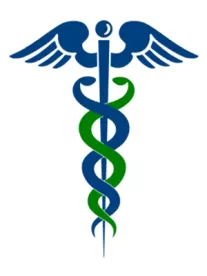The health care industry is familiar with the United States Department of Health and Human Services, Office of Inspector General (the "OIG") annual Work Plan as a helpful compliance tool. While we are familiar with the annual release identifying the OIG's new and ongoing investigative, enforcement, and compliance activities during the upcoming fiscal year, the Work Plan is getting a refresh under the current administration. Effective June 15, 2017, the OIG has begun updating its Work Plan monthly. These monthly updates may be used by compliance departments to review and update policies and procedures monthly based on the OIG's areas of interest.
The Work Plan provides insight into the OIG's enforcement priorities and remains a valuable resource for healthcare organizations when crafting and updating their audit and compliance programs. Health organizations are advised to stay informed of Work Plan updates as they will include both progress of current initiatives and newly initiated Work Plan items.
Here we summarize some of the significant OIG Work Plan updates released for June, July, and August.
Review of ACO's Participation in the Medicare Shared Savings Program (Added June 2017)
As a part of the Medicare Shared Savings Program's (the "MSSP") efforts to improve the quality of care for Medicare beneficiaries, Accountable Care Organizations ("ACOs") are given the opportunity to earn a share of any savings that they generate for the Medicare program. To receive these payments, ACOs are required to report on and satisfy certain quality measures. The OIG intends to review ACOs that received earned shared savings payments to determine if the quality measures were in fact met, and if the reported data was accurate. The OIG will also be evaluating other aspects of ACO performance under the MSSP. Members of ACOs should continue to ensure that they are creating and maintaining accurate records of performance under the MSSP.
Review of National Provider Identifiers Associated with Medicare Part D Claims (Added June 2017)
Starting in plan year 2016, claims for a covered Medicare Part D drug must include a valid prescriber National Provider Identifier ("NPI"). The Secretary of Health and Human Services is now required to establish procedures for determining the accuracy of NPIs for all Medicare Part D subscribers. The OIG must submit a report to Congress by January 1, 2018 on the effectiveness of the measures taken to comply with these new requirements. Providers need to ensure that all Medicare Part D drug claim records are accurate and include valid and proper NPIs.
Assessment of Payments Made Under the Electronic Health Record Incentive Program (Added July 2017)
In 2011, the Centers for Medicare and Medicaid Services ("CMS") established the Medicare and Medicaid Electronic Health Record ("EHR") Incentive Program to encourage eligible hospitals to adopt EHR technology for purposes of improving health care quality, efficiency and patient safety. During the 5-year program, CMS and Medicare made $14.6 billion in incentive payments to hospitals. The OIG's reviews of EHR incentive payments concluded that state agencies overpaid hospitals by $66.7 million and would probably overpay by an additional $13.2 million. The OIG has recommended CMS recover overpayments and plans to assess the calculations used in determining incentive payments. Program participants should maintain proper documentation and self-reporting of data and ensure that attestations made in conjunction with the EHR Incentive Program remain accurate.
Review of Medicare Payments Based on IPPS for Hospital Inpatient Stays (Added July 2017)
Hospital inpatient stays under Medicare Part A are paid based on the inpatient prospective payment system ("IPPS"), whereby hospitals are paid a set amount for the provision of inpatient services. The predetermined IPPS amount accounts for costs associated with the patient's hospital stay, routine services, ancillary services, special care costs, malpractice insurance costs, and preadmission services. As such, hospitals generally are not entitled to additional payments for non-physician outpatient services provided before inpatient stays (i.e., Medicare Part B payments made to providers for non-physician outpatient services). Past OIG reviews found hospital outpatient providers received overpayments for non-physician services provided before or during inpatient stays. The OIG plans to assess Medicare payments made for those non-physician outpatient services provided within three days prior to admission date, on the date of admission, and during the patient's stay to determine whether such payments were correct. Hospital providers should review their practices for billing non-physician services provided before or during inpatient stays to ensure the providers are not submitting duplicative bills for services covered under IPPS.
Evaluation of Telehealth Services and Rural Originating Site Qualifications (Added July 2017)
Telehealth services delivered via interactive telecommunications systems to support rural access to care are reimbursed under Medicare Part B as long as certain conditions are met. Medicare pays for those telehealth services provided through a live, interactive videoconferencing between a beneficiary in a rural location ("Rural Originating Site") and a practitioner at a distant site. The OIG will evaluate Medicare claims paid for telehealth services provided at distant sites without a corresponding claim from the Rural Originating Site to conclude whether those services met Medicare requirements. Providers at distant sites using telecommunications system substitutes for in-person encounters should ensure the Rural Originating Site qualifies as such and the conditions of payment are met prior to requesting payment. Likewise, the Rural Originating Sites should confirm services met Medicare requirements and be sure to submit the relevant claim.
Ambulance Services Subject to Skilled Nursing Facility Consolidated Billing Requirements (Added July 2017)
CMS requires all outside suppliers, including ambulance suppliers, providing services to patients of skilled nursing facilities ("SNFs") to bill and receive payment directly from the SNF for beneficiary stays covered under Medicare Part A. The OIG has detected high error rates and overpayments for such outside services. The OIG will specifically examine whether ambulance services subject to SNF Part A consolidated billing requirements were improperly billed and paid under Medicare Part B. The OIG will also examine how effective editing CMS's Common Working File, the database CMS uses to maintain Medicare records of individual beneficiaries, has been in preventing and detecting improper Part B payments in this area.
Medicare Payments for Overlapping Hospice and Part B Claims (Added July 2017)
Except for services provided by a hospice under arrangement or by an independent attending physician, a hospice beneficiary waives all rights for Medicare payments for all other services related to terminal hospice care or its equivalent. Other than the listed exceptions above, any outside service provider must look to the hospice for payment and not to Medicare. The OIG has found significant noncompliance with these requirements through past inspections, and the OIG will again review payments to hospices to determine if Medicare Part B claims for items and services were allowable.
Duplicate Drug Claims for Hospice Beneficiaries (Added August 2017)
Under Medicare Part A, providers of hospice services are paid a daily per diem amount for individuals electing hospice coverage. This per diem rate covers costs of hospice care, including costs of drugs related to the terminal illness. Because drugs related to hospice care are covered under Part A per diem payments, Medicare Part D does not pay for those prescription drugs related to the terminal illness. The OIG has found that Medicare may have paid twice for those prescription drugs for hospice patients and plans to assess the Part D drug claims made for hospice beneficiaries receiving a per diem under Part A and determine whether duplicative payments have been made.
Additional Area of Focus
Other areas of focus of the OIG in June, July and August are as follows:
-
Assessment of the Quality Payment Program;
-
Evaluation of Opioid Treatment Programs;
-
Determination of Overpayment of Performance Bonuses Under CHIPRA;
-
Evaluation of how CMS is determining which version of drugs to use in Medicare Part B payment calculations;
-
Assessment of the success of U.S. Department of Health & Human Services agencies in resolving audit recommendations over the last few years;
-
Determination of whether the National Institutes of Health has been properly setting cost rates for commercial grant recipients;
-
Analysis of whether selected states reported and returned the applicable Federal Medical Assistance Percentages share of the settlement and judgment amounts to the Federal government;
-
Review of Medicare Part A payments to home health agencies to determine whether claims billed to Medicare Part B for items and services were allowable in accordance with Federal regulations;
-
Review of Patient Safety Organization Programs;
-
Medicare Part B Payments for Psychotherapy Services; and
-
Ventilation Devices: Reasonableness of Medicare Payments Compared to Amounts Paid in the Open Market.





 />i
/>i

